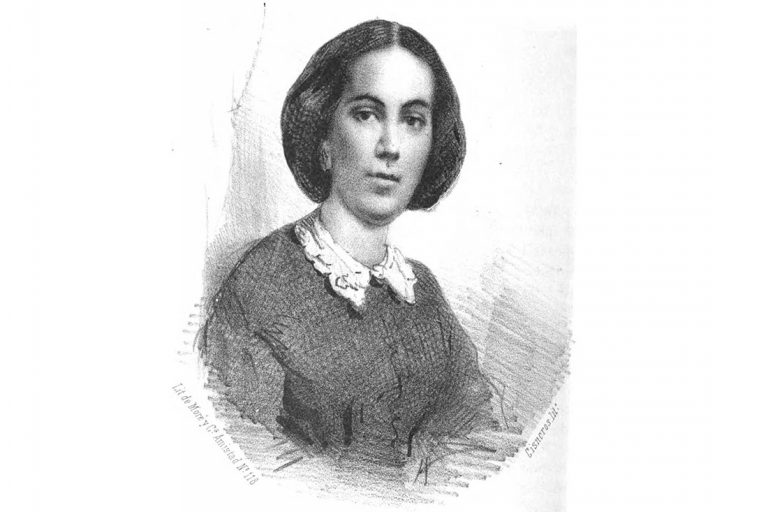The poetic work of Brígida Agüero y Agüero, from Camaguey, a member of the Philharmonic Society’s literature section, constitutes an inevitable legacy in Cuban lyricism.
If you hear that Camagüey is the cradle of Cuban literature, initially you may be surprised, coined in the memory of its inhabitants and foreigners as the the city of churches and waterpots, both aspects widely present in the city, but it is not always associated for its contributions to national literature.
However, a cursory study of the contributions in letters from Silvestre de Balboa Troya and Quesada, to the best known examples of Gaspar Betancourt Cisneros, El Lugareño, Gertrudis Gómez de Avellaneda, Aurelia del Castillo, Emilio Ballagas, Nicolás Guillén, among others, indisputably place the region on its own merit with that qualifier.
A woman
On the other hand, not all the feathers from Camagüey have been made visible in the literary field, one of them, Brígida Agüero y Agüero, comes from one of the oldest and most distinguished families in town, the Agüeros, it has an almost unexplored work, although it appears along with other female voices in the Photographic Poetic Album of Writers and Poets, 1868, by her compatriot Domitila García Coronado.
Historian Elda Cento Gómez, in her studies of the Agüero family, expressed “It seems that they had a good disposition for letters because there are among them several cultivators of the same, even among women.” An idea that can be asserted with the literary work of Brígida Agüero despite her premature death.
In the same way, the cultural evenings, lively home gatherings and the presence of various family members in the Philharmonic Society are recorded, especially the poet Francisco Agüero Duque y Estrada, “El Solitario”, Brígida’s father from whom she inherited literary skills just like other siblings.
Her first steps
She was born on May 12th, 1837, she lives the first years near her hometown, under the tutelage of her parents she receives a careful education and shows her love for letters since a very young age. Later, her family moved to town, as a result of the liberal ideas of her father and other relatives of her, for that reason they suffer persecution by the Spanish government.
At the age of seventeen, she receives literature classes at the Philharmonic Society, her worth later allows her to become a Faculty Member of the literature section. In the halls of the institution, she declaimed her poetry, which was widely accepted.
And despite being impregnated with a sweet melancholy, the poems Retratos de una señorita, Ecos del alma, Inspiración, La Fe Cristiana, Lo Bello, A Gertrudis Gómez de Avellaneda, A Puerto Príncipe, among others, return to us a highly sensitive lyric and literary value.
The memory of her in our city
Suffering from typhus, she died on June 26th, 1865. In 1955 the City Council received a request from the Order of the Grand Lodge La Perseverancia that Domingo Castillo Street, in the current historic center of the city, be named Brígida Agüero y Agüero to honor her memory, agreement that was fulfilled, although today it is called indistinctly by both designations.
Translated by: Aileen Álvarez García






